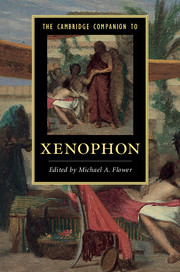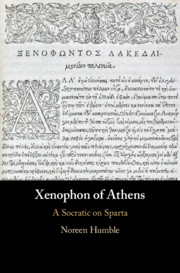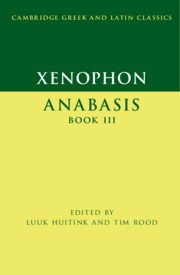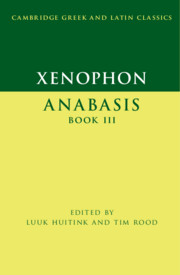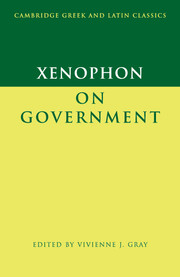The Cambridge Companion to Xenophon
This Companion, the first dedicated to the philosopher and historian Xenophon of Athens, gives readers a sense of why he has held such a prominent place in literary and political culture from antiquity to the present and has been a favourite author of individuals as diverse as Machiavelli, Thomas Jefferson, and Leo Tolstoy. It also sets out the major problems and issues that are at stake in the study of his writings, while simultaneously pointing the way forward to newer methodologies, issues, and questions. Although Xenophon's historical, philosophical, and technical works are usually studied in isolation because they belong to different modern genres, the emphasis here is on themes that cut across his large and varied body of writings. This volume is accessible to students and general readers, including those previously unfamiliar with Xenophon, and will also be of interest to scholars in various fields.
- The only volume to offer a comprehensive general introduction to Xenophon to students and nonspecialists
- Emphasizes themes that cut across his whole corpus of writings rather than studying them in isolation, as has usually happened
- Assumes no previous familiarity with Xenophon's writings
Reviews & endorsements
'The volume approaches Xenophon's writing from a variety of perspectives, with a goal of accounting for him as a thinker who transcends disciplinary lines.' CHOICE
Product details
April 2017Hardback
9781107050068
544 pages
235 × 157 × 32 mm
0.86kg
3 b/w illus. 4 maps
Available
Table of Contents
- Introduction Michael A. Flower
- Part I. Contexts:
- 1. Xenophon and his times John W. I. Lee
- 2. Xenophon and Greek philosophy Louis-André Dorion
- 3. Xenophon and Greek political thought Sarah Brown Ferrario
- 4. Xenophon's place in fourth-century Greek historiography Nino Luraghi
- Part II. Individual Works:
- 5. Xenophon's Anabasis and Hellenica John Marincola
- 6. Xenophon's Apology and Memorabilia David M. Johnson
- 7. Xenophon's Symposium Gabriel Danzig
- 8. Xenophon's Oeconomicus Fiona Hobden
- 9. Xenophon's Cyropaedia: tentative answers to an enigma Melina Tamiolaki
- 10. Xenophon: the small works John Dillery
- Part III. Techniques:
- 11. Xenophon's language and expression Vivienne Gray
- 12. Xenophon's authorial voice Christopher Pelling
- 13. Xenophon's narrative style Tim Rood
- 14. The character and function of speeches in Xenophon Emily Baragwanath
- Part IV. Major Subjects:
- 15. Xenophon as a historian Michael A. Flower
- 16. Xenophon on leadership Richard Fernando Buxton
- 17. Xenophon and Athens Christopher Tuplin
- 18. Xenophon on Persia Kostas Vlassopoulos
- 19. Xenophon's views on Sparta Paul Christesen
- Part V. Reception and Influence:
- 20. Xenophon's influence in Imperial Greece Ewen Bowie
- 21. Xenophon and the instruction of princes Noreen Humble
- 22. Xenophon's changing fortunes in the modern world Tim Rood
- Epilogue:
- 23. Xenophon: magician and friend Edith Hall
- Important dates in the life of Xenophon.

